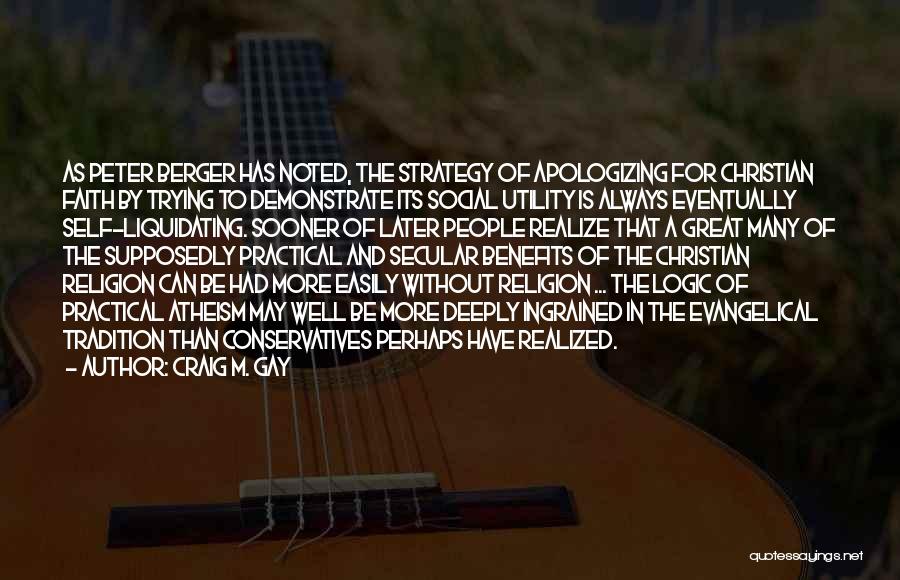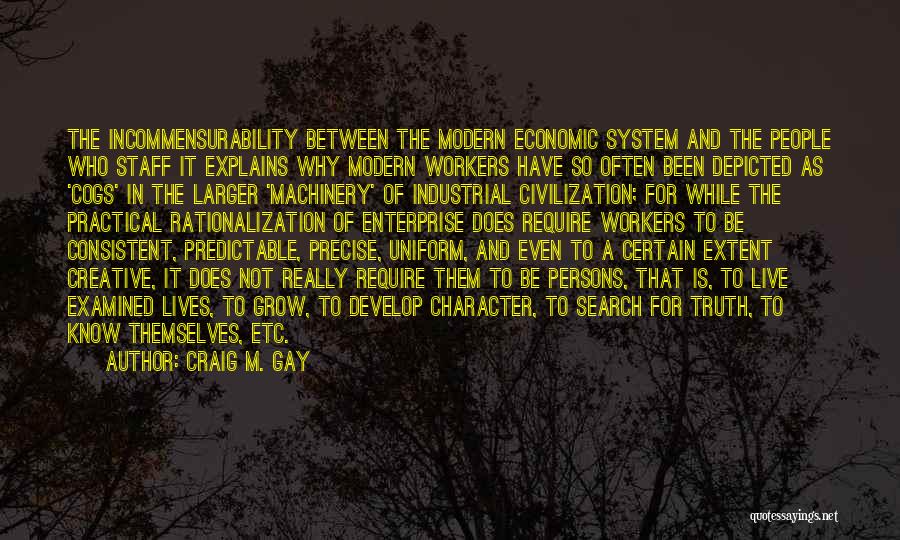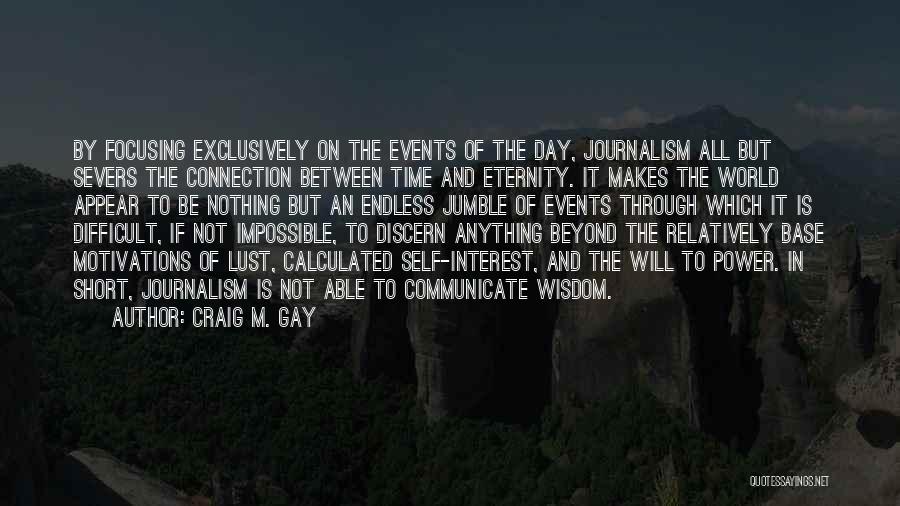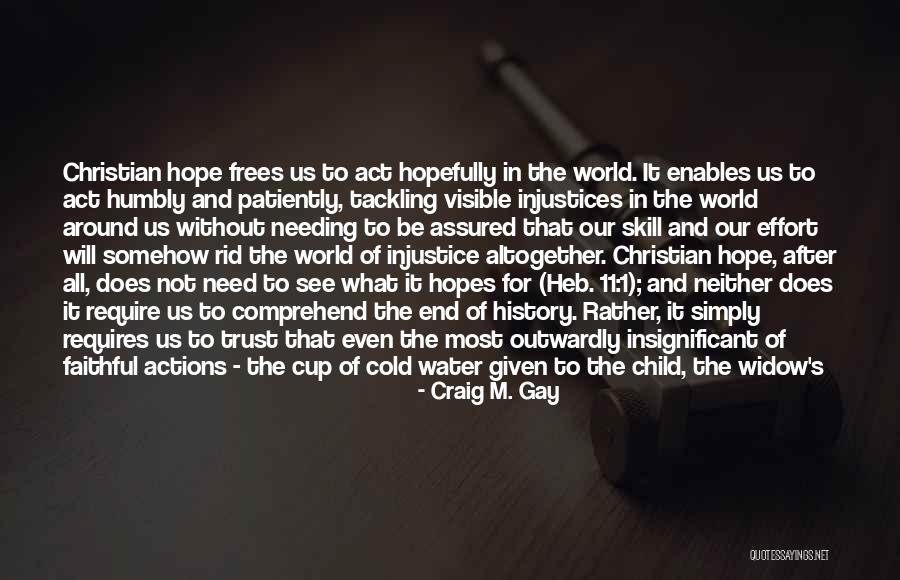Craig M. Gay Quotes & Sayings
Enjoy the top 4 famous quotes, sayings and quotations by Craig M. Gay.
Famous Quotes By Craig M. Gay

As Peter Berger has noted, the strategy of apologizing for Christian faith by trying to demonstrate its social utility is always eventually self-liquidating. Sooner of later people realize that a great many of the supposedly practical and secular benefits of the Christian religion can be had more easily without religion ... The logic of practical atheism may well be more deeply ingrained in the evangelical tradition than conservatives perhaps have realized. — Craig M. Gay

The incommensurability between the modern economic system and the people who staff it explains why modern workers have so often been depicted as 'cogs' in the larger 'machinery' of industrial civilization; for while the practical rationalization of enterprise does require workers to be consistent, predictable, precise, uniform, and even to a certain extent creative, it does not really require them to be persons, that is, to live examined lives, to grow, to develop character, to search for truth, to know themselves, etc. — Craig M. Gay

By focusing exclusively on the events of the day, journalism all but severs the connection between time and eternity. It makes the world appear to be nothing but an endless jumble of events through which it is difficult, if not impossible, to discern anything beyond the relatively base motivations of lust, calculated self-interest, and the will to power. In short, journalism is not able to communicate wisdom. — Craig M. Gay

Christian hope frees us to act hopefully in the world. It enables us to act humbly and patiently, tackling visible injustices in the world around us without needing to be assured that our skill and our effort will somehow rid the world of injustice altogether. Christian hope, after all, does not need to see what it hopes for (Heb. 11:1); and neither does it require us to comprehend the end of history. Rather, it simply requires us to trust that even the most outwardly insignificant of faithful actions - the cup of cold water given to the child, the widow's mite offered at the temple, the act of hospitality shown to the stranger, none of which has any overall strategic socio-political significance so far as we can now see - will nevertheless be made to contribute in some significant way to the construction of God's kingdom by the action of God's creative and sovereign grace. — Craig M. Gay





